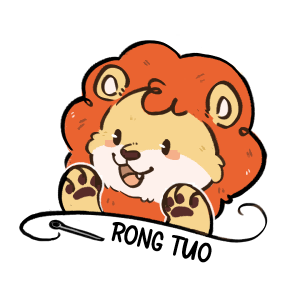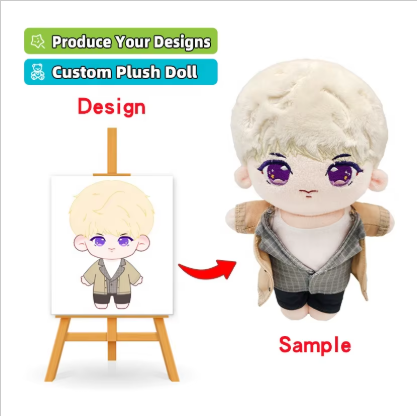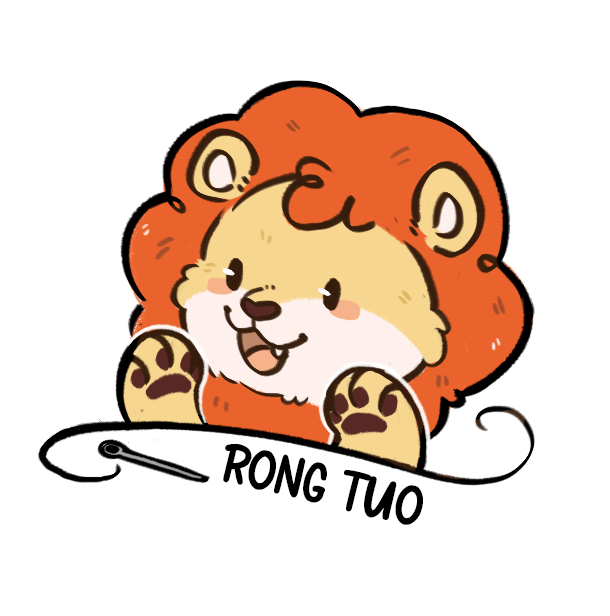Top Sources for Custom-Made Plush Bags
Specialized Toy Manufacturers (OEM/ODM Services)
Toy makers who specialize in OEM and ODM work provide customized options for plush bag manufacturing. Most of these companies have pretty impressive production setups that let them craft bespoke designs from various fabrics and stuffing materials according to what each client actually wants. Working directly with these manufacturers means products stay consistently good quality across batches, plus it's easier to ramp up production when orders come in unexpectedly. Many top tier manufacturers run operations out of modern factories complete with ISO certifications and other international safety marks, so they know how to tick all the boxes required by different markets around the world.
E-commerce Platforms with Customization Tools
People who want to get their hands on custom plush bags without too much hassle will find plenty of options online. Sites such as Zazzle, Teespring, and Printful let folks create their own designs pretty effortlessly. Just pick from different patterns, select colors that match what they're going for, maybe throw in some text if they feel fancy. What makes these platforms stand out is how smooth everything works from start to finish. No complicated steps here. Most have drag-and-drop features so even someone not tech savvy can make something cool. The best part? There are tons of choices available when it comes to personalizing items. Want a bag with a unique pattern? Go ahead. Prefer bold letters across the front? That's possible too. These services really give shoppers room to express themselves while still keeping things simple enough for anyone to use.
Local Artisans & Small-Batch Creators
Getting custom plush bags made by local artists and small scale makers comes with real advantages. What sets these apart is the personal flair that goes into each piece something factory made items just cant match. Sites like Etsy have become pretty good at linking people looking for something special with those creative folks who actually make them. When someone buys from these local creators, it helps boost the economy around town while also keeping artistic traditions alive. People love being able to pick out exactly what they want whether its choosing specific fabrics, picking colors that stand out, or adding little details that make the bag truly their own.
Platforms like Etsy and Amazon Handmade are excellent starting points to find these artisans offering personalized plush bag services.
Eco-Friendly Custom Plush Bag Options
Recycled Material Suppliers (e.g., EcoPlush Co.)
Finding suppliers who work with green, recycled stuff matters a lot when making sustainable plush bags. Take EcoPlush Co. for example they stock up on materials made from recycled sources that actually last longer than regular options too. The whole sustainability angle has really taken off in the plush bag world lately because shoppers want greener alternatives these days. Companies such as GreenLife Bags recently rolled out a line using recycled polyester fabric, cutting down their environmental impact quite a bit. Going this route doesn't just satisfy customers looking for eco options it helps businesses stand out as pioneers in the sustainability game too.
Low-Waste Production Processes
Switching to low waste production techniques represents a major move forward for making plush bags sustainably. The core idea here is cutting down on both materials wasted and energy used throughout manufacturing. For instance many factories now rely on computer generated patterns which dramatically cuts fabric scraps compared to traditional cutting methods. Going green this way actually makes good business sense too. Take Patagonia as a prime example they've been doing this kind of thing for years now and people notice. Their environmental footprint shrinks while customers start associating them with responsibility rather than just another clothing brand. Most companies find that when they implement similar approaches, not only does their bottom line improve from waste reduction but consumers tend to trust them more knowing they care about what happens after purchase.
Certifications to Look For
For plush bags, eco certifications serve as pretty good markers for companies trying to show they care about responsible manufacturing. The GOTS certification and Oeko-Tex labels basically mean a manufacturer follows certain rules regarding both environment protection and worker treatment. When shoppers see these badges on product packaging, it builds trust because they know someone checked that the materials used were sustainable and safe. Many brands now put these certifications front and center since customers increasingly want proof their purchases don't harm the planet. While not every certified brand is perfect, having these marks does give companies an advantage in markets where green consciousness matters most to buyers looking for ethical alternatives.
Customization Process: From Design to Delivery
Step 1: Define Your Style (Kawaii, Minimalist, etc.)
Figuring out what style works best comes first when making custom plush bags. People love different looks these days. Some go for the super cute Kawaii style with all those adorable details, while others stick to minimalist designs that have clean lines and no extra fluff. When talking to manufacturers about what we want, it helps to show them visual references through mood boards or rough sketches highlighting key elements of our chosen style. Getting inside the heads of potential customers matters too because their tastes shape how we approach design decisions. A bag might need to scream cuteness for one group but stay simple and elegant for another set of buyers looking for something more understated in their collection.
Step 2: Fabric Selection Guide (Faux Fur vs. Velvet)
The choice of fabric really matters when making plush bags, and there are several options out there with different qualities. Faux fur gives that soft, fluffy texture people love in Kawaii style designs, which just makes them extra cute and appealing. Velvet offers something completely different though it has this rich, luxurious feel that works great for creating those sleek minimalist looks many customers want these days. When picking materials for production, think about what the bag will actually be used for and who the main buyers might be. Durability, price point, and how easy they are to take care of should all factor into the decision. Faux fur tends to be pretty straightforward to keep clean, but velvet requires some extra TLC during maintenance since it's not as forgiving if mishandled.
Step 3: Personalization Add-Ons (Embroidery, Charms)
Adding personal touches like embroidery work or charm attachments gives customers real creative freedom when making their own custom plush bags stand out from others. When someone stitches initials or complex patterns onto fabric, it really makes the item feel special and one-of-a kind. Small metal charms attached to straps or corners let owners showcase hobbies, favorite colors, or even seasonal themes that set their bag apart at first glance. The catch though? These extras definitely come with extra price tags too. Most craft stores charge extra for both materials and labor involved in customization. People who love personalized items often find themselves willing to pay more because having something made just for them feels worth every penny spent on those little details that make all the difference.
Step 4: Production Timeline Management
Managing production timelines effectively makes all the difference when it comes to delivering custom plush bags on schedule. The process usually breaks down into distinct stages from initial design through sample creation, actual manufacturing, and finally shipping. Keeping close tabs on manufacturer progress helps catch problems early before they become major roadblocks. Most projects spend around two to four weeks in the design and sample phase, though full scale production can sometimes stretch out over three or even four months depending on order size. Good working relationships with suppliers tend to make everything run smoother. When companies maintain open lines of communication throughout the process, they avoid those frustrating last minute delays that nobody wants and ultimately keep customers happy with their orders arriving right on time.
Budget Considerations & Quality Checks
Price Ranges ($20-$300+ Based on Complexity)
Getting a handle on what custom plush bags cost matters a lot since prices jump around depending on how complicated the design is and just how big the bag needs to be. We're talking anywhere between about $20 all the way up past $300 sometimes. A bunch of things affect what people end up paying for them. The fabric choice makes a difference, obviously. If someone wants something really detailed versus just simple stuff. And then there's how many bags they need at once too. Small bags with not much going on tend to cost way less money compared to those bigger ones packed full of fancy designs. People who know this market well also point out that higher quality materials and special custom touches definitely push the price tag higher.
Comparing MOQs: Small-Batch vs Bulk Orders
When it comes to budgeting for custom plush bags, Minimum Order Quantities (MOQs) really matter when companies are trying to decide whether to go with small batches or bulk orders. Small batch orders tend to cost more per item, but they give businesses room to experiment without too much financial risk if they're launching something new. Bulk orders on the other hand generally save money per unit, so this makes sense for products that already have an established customer base. Take XYZ Store as one case study they started off ordering smaller quantities just to see how their customers would react to the new design. Once they saw positive feedback and decent sales numbers, they ramped up production volumes significantly for broader market reach.
Inspecting Stitching & Seam Durability
Checking how well the stitching holds up and whether seams stay intact matters a lot when judging custom plush bags. Bags made with care usually have stitching that's even across the whole piece and pulls tight without gaps, making them last longer and hold up better against daily wear. Anyone looking at quality should notice if the seams run straight line after line and check for extra layers of stitching where the bag gets pulled most, like handles or corners. Serious makers don't just hope for the best; they actually test their work through various quality control steps to keep things up to snuff. Many stick to established standards worldwide, including systems like AQL for quality levels, so every bag leaving the factory passes basic durability tests first.


